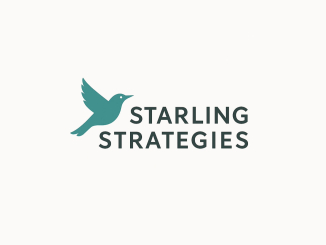
By Kenneth Surbrugg, Director of the Center for Entrepreneurship at Missouri Southern State University
Over the past few months, I have found myself discussing the differences between a small business owner and an entrepreneur. On the one hand, some believe that the two terms are interchangeable. On the other hand, some believe that the two “titles” are different. Who is right? That is not mine to decide, but it made me think about this debate.
Entrepreneurs are viewed as being more innovative and exciting. These individuals are the ones who push advancements in technology and further society. These are the individuals who start companies that unlock millions of dollars in value and expand entrepreneurial ecosystems across the globe. Look at the advancement in smartphones and the multiple apps that run on them as quick evidence for this argument.
Small business owners, on the other hand, are viewed as being less innovative and less exciting. These individuals start businesses that usually serve the local market. These businesses typically start small and, for the most part, stay small. Think of a locally owned restaurant, a barber or salon, or a local cleaning company.
Yes, entrepreneurs are exciting and usually on the cutting edge (or beyond). These individuals or teams have the potential to unlock value for themselves and their early investors. Many of them have “cool” backstories that can be found in the national and international entrepreneurial press.
However, small businesses are where most of us work and shop on a daily basis. Small businesses create real value every day and are the backbone of the U.S. economy, making up to “99.9% of all U.S. businesses and 99.7% of firms with paid employees” (“How Small Businesses Drive the American Economy,” Forbes, March 25, 2022).
Are these the only two choices when it comes to defining a business? According to A New Entrepreneurial Dynamic: 21st Century Startups and Small Businesses by Greg Autry, there are several different types of businesses. Below are a few examples to explore:
- Rapid-Growth Startup: These are the high-tech ventures that are seen as innovative and exciting. These firms attract venture capitalists and dominate the entrepreneurial press. Although these firms can grow quickly and dominate the press, they also fail quickly.
- Main Street Entrepreneur: This is what most of us think of as a traditional mom-and-pop small business. These can be owned and operated by an individual, a family, a group of friends, or all of the above. These are the companies that do not attract many outside investors and rarely scale beyond the local market.
- The Organic-Growth Small Business: These businesses grow through the reinvestment of profits, so growth is funded over time. This model allows the founder(s) to have the most control over the company and its future and prevents them from having to answer to outside investors.
- The Buyable Startup: This is a smaller version of the rapid-growth startup and is usually focused on a particular technology, product, or service. These businesses usually have a for-sale sign on the door before they actually open for business. They demonstrate their business model and then try to cash in on it early so they can move on to their next idea.
- The Lifestyle Business: Owners of these businesses do not try to grow them but rely on them to provide a steady income so the owner(s) can maintain a certain lifestyle. This can mean living in a certain area, providing flexibility to attend to outside interests, or being in an industry that the owner(s) find interesting.
- The Social Entrepreneur: These businesses strive for profitability to support a special mission or causes that are important to either the entrepreneur or the community. These firms can simply donate a percentage of their profits to those missions, or they can incorporate social responsibility into their core culture.
As we enter the new year, now is a good time to review and to think about the type of business you want. Can a lifestyle business become a rapid-growth startup? Maybe — but is that what you want? Do you want to transition into a social entrepreneur? There are no right or wrong answers. Anyone looking to start, grow, or maintain a business must assume risks for the potential of profit and be satisfied with the balance of the demands of time and resources involved and expected from the business.
So, it is up to you, the small business entrepreneur. Small businesses are the backbone of this country and I believe that the two terms have equal importance.
No matter what type of firm (or title) you have or aspire to have, remember to keep innovating.








Be the first to comment